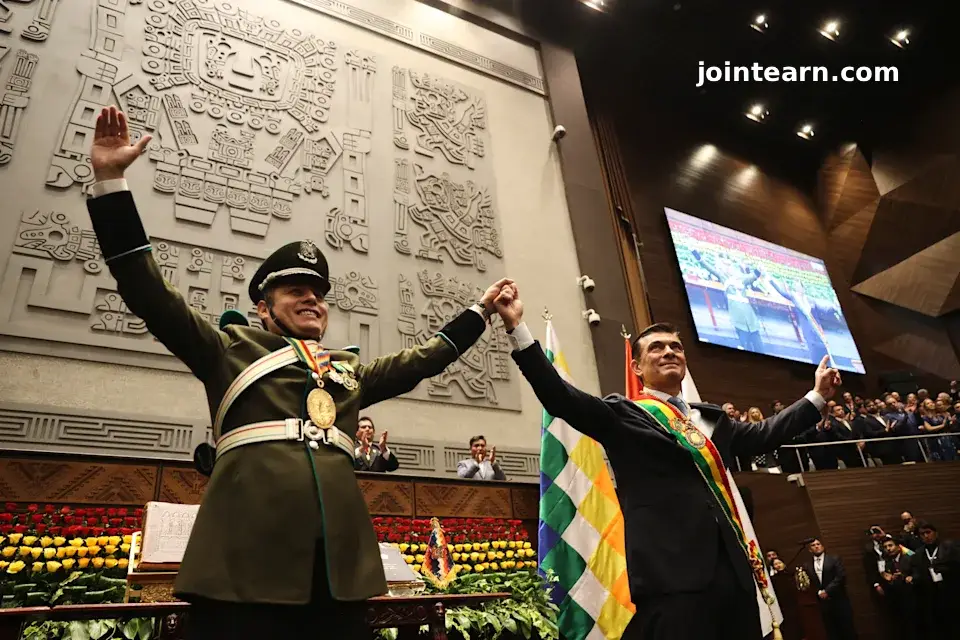
LA PAZ, Bolivia — Conservative politician Rodrigo Paz was officially sworn in as Bolivia’s president on Saturday, marking the end of nearly two decades of one-party socialist rule under the Movement Toward Socialism (MAS) party. The 58-year-old leader took the oath of office before lawmakers and international dignitaries, raising his right hand over a Bible and cross, and declared:
“God, country, and family, I do swear.”
Paz received the presidential sash and medals as he assumed leadership amid Bolivia’s worst economic crisis in 40 years, characterized by fuel shortages, high inflation, and scarcity of U.S. dollars. His victory over former President Jorge “Tuto” Quiroga in last month’s runoff election surprised many and reflected the electorate’s desire for economic stabilization and reform.
Economic Challenges and Reform Agenda
Paz inherits a struggling economy after 20 years of socialist policies under MAS, founded by Evo Morales. Once buoyed by a commodities boom, Bolivia’s reliance on natural gas exports and statist economic policies, including subsidies and a fixed exchange rate, has left the nation economically fragile.
In his inaugural speech, Paz highlighted the urgency of reforms:
“The country we inherited is devastated … morally and materially indebted, with endless lines for fuel and empty markets. Bolivia is rejoining the world, never again isolated. Ideology doesn’t put food on the table.”
He has committed to gradual economic reforms, balancing social programs with fiscal responsibility, while exploring international support. Notably, Paz reached an initial agreement with the Andean Development Corporation for a $3.1 billion loan to aid economic recovery.
Paz’s pro-business orientation also signals a shift toward the United States and international investors, distancing Bolivia from the ALBA bloc that includes Cuba, Nicaragua, and Venezuela. He has pledged cooperation with international organizations on security and anti-narcotics efforts, including the U.S. Drug Enforcement Administration, which had been expelled during Morales’s administration in 2008.
Political Landscape
Paz’s Christian Democratic Party controls only 39% of the 166 seats in Bolivia’s Legislative Assembly, meaning coalition-building will be essential. He emphasized the importance of rule of law and true democracy, asserting:
“We haven’t been handed a throne, but a task. This is the time for true democracy and respect for the law; no one is above the law. We will overcome that disgraceful and shameful past.”
International Engagement
The inauguration drew regional leaders, including:
- Argentina: President Javier Milei
- Chile: President Gabriel Boric
- Ecuador: President Daniel Noboa
- Uruguay: President Yamandú Orsi
- Paraguay: President Santiago Peña
Experts suggest that Paz’s early actions, including reestablishing foreign partnerships and restoring investor confidence, will be critical in determining whether Bolivia can overcome its economic and political challenges.


Leave a Reply